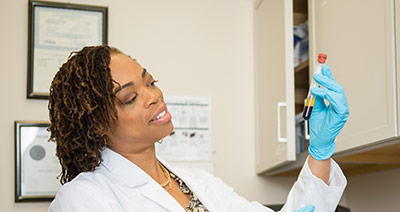Are There Any Disadvantages To Robotic Prostatectomy?
Dr. Engel, a pioneer in the field, has faced nearly all of the criticisms of robotic surgery over the last ten years. He has answered nearly every criticism of the technology by thoroughly and prospectively collecting data since the George Washington program’s inception in order to critically analyze performance, complications and outcomes. He has used these data to honestly critique himself and the technology and make changes that resulted in outcome improvements along the way.
In short, in experienced hands, there are absolutely no disadvantages of the robotic approach – only advantages. Early criticisms included the thought that robotic prostatectomy takes longer, that the recovery time is no different, that complications were higher than with open radical prostatectomy, that robotic prostatectomy may not be appropriate for high risk cancers, that margin positivity rates were higher than open radical prostatectomy, and that outcomes such as sexual function are not improved. To date, Dr. Engel’s average operative time is approximately 90 minutes, which is far less than would be seen with open surgery. The recovery time in nearly every category is cut in half, including hospital stay (<24 hours vs. <48 hours), catheterization time (6 days versus 10-14 days), and return to work (10-14 days versus approximately 1 month). GW surgeons reviewed the program’s complications, and have found that our total complication rate is among the lowest in the country, lower overall than most open series, with major complications such as bleeding, anastomotic leak, infection, blood clot or rectal/bowel injury being exceedingly low. Dr. Engel has also published his rate of bladder neck contracture as being significantly less than would be seen in an open series, and a transfusion rate that also provides similar superiority over the open procedure.
Two criticisms that Dr. Engel took to heart were the accusations that cancer cure is lower with robotic surgery in general, and that robotic surgery was not appropriate for high risk cases. In a review of his first 500 cases, looking at positive margin rates, it was shown that positive margin rates very much correlate with experience, with a plateau in performance coming at approximately 300 cases. After that point, robotic surgery actually has the ability to produce margin rates that are superior to most open series matched stage-for-stage. Interestingly, the same correlation between experience and cancer cure exists strongly with open radical prostatectomy as well. Another of Dr. Engel’s studies, often cited, was his review of 128 consecutive high risk cases in which bilateral nerve sparing robotic prostatectomy alone, without hormone therapy or radiation therapy was performed. That series definitively proved robotic prostatectomy to provide as high or higher cure rates than the open approach, and helped cement Dr. Engel’s opinion that surgery is the best option for high risk cases and that salvage radiation, rather than adjuvant radiation, should be the standard approach in such cases.
It is true that to date there have been no studies that prove that robotic prostatectomy produces superior continence, but the general impression is that robotic prostatectomy likely produces earlier continence than open surgery. And with regards to impotence, Dr. Engel has always been known in the robotic surgery community as a rare high volume surgeon that has always followed all of his patients personally after robotic prostatectomy, managing the impotence and incontinence of his patients personally. This has caused Dr. Engel to be particularly insightful in terms of advising and helping his patients after surgery. He is well known for his research into erectile function after prostatectomy and his study of penile rehabilitation after prostatectomy. He also performs his own incontinence surgeries for men that need it. He has been interviewed in the New York Times and on NPR several times as a very honest source of information on these topics. Dr. Engel is honest in stating that all men will suffer erectile dysfunction after prostatectomy, and that the main indicators as to whether erections will eventually return really have more to do with the patient and their spouse, and less to do with the surgery. He has shown that in highly experienced hands, the outcomes regarding return of erections are identical amongst highly skilled surgeons. Robotic surgery does consistently offer a slight advantage over open surgery in nearly every series that Dr. Engel has reviewed, but these advantages are slight, and completely trumped by the effect that parameters such as patient age, interest, pre-operative erectile function and motivation has on the end result.
One final criticism warrants mention here. Open surgeons often stress the inability to use one’s hands to feel around the prostate to judge the extent of cancer. Experienced robotic surgeons don’t find this to be a disadvantage at all. Experienced robotic surgeons substitute a far better sense for blind palpation, and that is direct vision of the nerves as they are being dissected. With experience, the robotic surgeon has a far better ability to tailor the amount of nerve resection required to achieve a negative margin than is possible with blind palpation, and as a result almost always resects less nerve in a case of extensive cancer than one would be forced to do in the open procedure. The advantage of this improved vision is clear in the operative videos found on this site.
Feel free to review several of our manuscripts in Dr. Engel’s bibliography found elsewhere on this site to examine his results and research in further detail.




